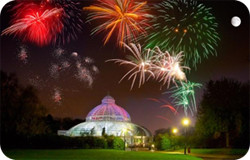 Liverpool fireworks and bonfire displays are ready to make sure November 5 goes off with a bang across Liverpool and Merseyside.
Liverpool fireworks and bonfire displays are ready to make sure November 5 goes off with a bang across Liverpool and Merseyside.
Thousands of families are expected to flock to organised displays which are taking place in parks and other venues across Liverpool, Sefton, St Helens, Wirral and Knowsley.
Whatever you do on Bonfire Night, the number one aim is for you and your kids to have loads of fun. But while you do, please follow some basic safety rules to make sure no-one ends up in tears or at A&E!
Have fun, stay safe and attend an organised bonfire night in Liverpool
Bonfire night can be great fun for all the family but it is important that you celebrate safely. We are appealing to everyone to take great care this bonfire night. We recommend that you visit an organised display. If you are having a display at home please make sure you follow the firework code.
It’s a fact that many accidents are caused by improper use of fireworks and by carelessness. Figures show that more children than adults get hurt by fireworks.
Watching fireworks is popular and fun. But fireworks are explosives and potentially dangerous, so they need careful handling and storage.
Every year on Bonfire Night there are hundreds of accidents across the UK, and lots of them happen to children. Fireworks can be very dangerous and that’s why safety is the most important thing when it comes to having a display.
The Royal Society for the Prevention of Accidents (RoSPA) say adults should deal with fireworks and that children should watch from a safe distance. Pets often get very frightened by fireworks, so watch out for them too. You might want to keep all your pets indoors and close all the curtains.
The Firework Code
- Only buy fireworks marked BS 7114.
- Don’t drink alcohol if setting off fireworks.
- Keep fireworks in a closed box.
- Follow the instructions on each firework.
- Light them at arm’s length, using a taper.
- Stand well back.
- Never go near a firework that has been lit. Even if it hasn’t gone off it could still explode.
- Never put fireworks in your pocket or throw them.
- Always supervise children around fireworks.
- Light sparklers one at a time and wear gloves.
- Never give sparklers to a child under five.
- Keep pets indoors.
- Don’t set off noisy fireworks late at night and never after 11:00pm.
Fireworks and the law
It is an offence for anyone under the age of 18 to possess fireworks in public places and an offence for anyone, other than a firework professional, to possess professional display fireworks.
It is illegal to set off fireworks between 11:00pm and 7:00am. On 5 November, displays can continue until midnight and on certain occasions, such as New Year’s Eve, Diwali and Chinese New Year, fireworks can be set off until 1:00am.
Interesting Facts about Bonfire Night
- The first fireworks were probably made in China, around 2,000 years ago. Chinese crackers, as they are known, are still used in China today to celebrate weddings, births and religious festivals – and to scare away evil spirits!
- Fireworks were used for centuries in ancient Indian and Thai religious ceremonies. Some of the rockets were 8-10 feet long and were attached to bamboo sticks that were 40 feet high.
- The first recorded fireworks in England were at the wedding of King Henry VII in 1486. They gained popularity during the reign of Henry VIII and by Elizabethan times (1558-1603) there was a fireworks master. Queen Elizabeth I created this post so that someone would be in charge of organising firework displays for great occasions. James II even knighted his fireworks master after a particularly excellent show of fireworks at his coronation.
Further information on Fire Safety and Guidance on Bonfire Night
Organising Firework Displays – Guidance from the HSE
If you are organising a major public event, you will clearly need a robust and detailed approach to planning as well as professional involvement. If you are holding a local firework display, such as those organised by many sports clubs, schools or parish councils, you still need to plan responsibly, but the same level of detail is not necessary or expected.
Guidance from the HSE on Bonfire Night
